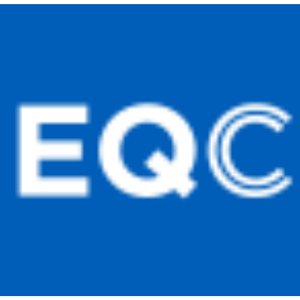Indaba Capital Urges Equity Commonwealth’s Board to Cease its Exploration of “Transformative” Acquisitions and Pursue a Liquidation to Maximize Shareholder Value
Issues Open Letter to the Board Following its Resistance to Indaba’s Private Engagement and Growing Concern Among Shareholders About the Company’s Path Forward
Makes Clear That the Board’s Arbitrary End-of-Year Deadline for Deciding Between a Major Transaction or Liquidation Incentivizes Poor Decision-Making and Reckless Capital Allocation
Reminds the Board it has Presided Over a Decade of Poor Financial Performance and Lacks Any Track Record of Effectively Allocating Capital to Value-Enhancing Acquisitions
Urges the Board to Stop Wasting Company Resources and Embrace Shareholder-Friendly Governance by Convening a Vote on a Prospective Liquidation
***
July 22, 2024
Equity Commonwealth
Two North Riverside Plaza, Suite 2000
Attn: Board of Trustees
Members of the Board,
As you know from our prior communications, Indaba is a significant shareholder of EQC, with ownership of approximately
After following EQC for many years, we can state with conviction that the Company is severely undervalued due to its leadership’s actions and decisions. EQC’s equity market value should far exceed its current level of approximately
We believe EQC’s valuation reflects investor fear about the Company exploring a large “transformative" acquisition instead of exclusively focusing on the orderly, safe liquidation that a growing number of shareholders appear to want.1 Moreover, we maintain that the Board’s arbitrary end-of-year deadline for deciding between the two aforementioned paths incentivizes leadership to recklessly allocate capital to a risky transaction. The Board’s decision to set this timeline seems to reflect a pattern of poor corporate governance, as evidenced by the following:
- The Board is giving management just a few months to find a multi-billion-dollar deal or lose its jobs, thereby undermining thoughtful decision-making and creating conflicts of interest with shareholders.
- The Board is broadcasting the urgency of identifying a target, effectively compromising the Company’s leverage as a discerning purchaser.
- The Board is devoting the Company’s resources to an assessment of acquisitions despite having no track record of allocating capital to value-enhancing deals over its 10-year tenure.
- The Board appears comfortable risking all of the Company’s capital on a multi-billion-dollar transaction without shareholder approval.
Shareholders might be more inclined to give you the benefit of the doubt if not for the long-term financial underperformance and stagnation under your leadership. Despite the Company’s dispositions and distributions over the past decade, the fact is the Company’s total shareholder returns have been extremely disappointing. This reinforces the merits of a liquidation.
It is time for the Board and management to carefully reflect on what is best for shareholders, not what is best for you as long-serving directors and highly paid executives.
It would be a corporate governance “worst practice” for EQC to now pursue a risky deal without incorporating direct shareholder input.
As you know, we have engaged with you in a private manner to share our analysis and concerns about your current course of action. We expressed our view that for shareholders to achieve full and fair value for their stock, EQC needs to stop pursuing new investments, promptly announce a plan to commence a liquidation, and set a date for a shareholder vote to ratify that path forward. To that end, we urged the Board to announce a plan to liquidate EQC by its second quarter earnings release later this month.
We hoped you would be receptive and engage with us in good faith; however, we have found leadership to be defensive and dismissive. This is equal parts problematic and ironic, particularly since all but one current Board member joined EQC as a result of shareholder activism a decade ago. It has now been almost a month since we last spoke and you have yet to follow up with us at all. Your total silence reflects an alarming disregard for shareholders. This apparent neglect, amidst the Company’s pursuit of a near-term “transformative” transaction, has prompted us to begin communicating publicly.
The Board must immediately rethink its standards for corporate governance at this inflection point and, in turn, start to prioritize acting for the benefit of shareholders.
Amidst a challenging real estate environment, it is all the more inappropriate for this Board to pursue a “transformative” transaction over the objections of a growing subset of shareholders and without a shareholder vote. EQC was unable to execute accretive acquisitions during much more attractive market environments, leaving us to question how the Board could seriously ask shareholders to trust leadership’s acquisition capabilities right now.
Leadership’s protracted continuation of the Company and its mixed messaging around a possible liquidation are unmistakably detrimental to shareholders, including the many long-suffering ones who placed their trust in this Board many years ago. With only four properties remaining, the Company does not need its massive overhead. Nor should its top four executives have earned
Although we acknowledge that you showed discipline by avoiding bad deals in the past, the Board altered these dynamics by disclosing a self-imposed deadline for announcing a large transaction. Putting management in a figurative do-or-die scenario alters incentives and motivations. There are now serious conflicts of interests in play, with the management team and its advisors having obvious economic incentives to find a large acquisition that extends their roles and the Company’s lifecycle.
We will not stand idly by as the Board continues to disregard the tenets of sound corporate governance and push such risks on shareholders.
EQC must adopt checks and balances, with the Board publicly committing to give shareholders the final say on any “transformative” transaction for which they will bear the risks.
At present, EQC is essentially an unconstrained vehicle with well over
In case the Board has forgotten, we remind you that an unknown “transformative” transaction carries high degrees of execution risk and underwriting uncertainty, for both the Company and for shareholders. A liquidation represents a value-maximizing path with a high degree of certainty and a low degree of difficulty.
It seems to us that the Board has lost sight of its obligation to act exclusively for the benefit of shareholders. Remember that you only gained your positions of power after EQC shareholders replaced an entire team of underperforming managers that prioritized empire building over returns. It would be an ignominious end to this chapter of EQC’s story if the Board were seduced into a “transformative” transaction for the benefit of insiders and to the detriment of shareholders.
In sum, you have not earned the right to unilaterally gamble with shareholders’ capital.
Shareholders have been patient while this Board spent a decade exploring pathways to recast the trajectory of EQC. Despite six of the seven current Board members serving since 2014, you have demonstrated an inability to effectively allocate capital. Shareholders do not trust this Board to do so now at the eleventh hour.
As a veteran Board, you are also judged by the performance you have presided over. The vast majority of you have spent your tenures overseeing objectively poor share price performance on an absolute basis and relative to the market:2
1 YEAR TSR |
3 YEAR TSR |
5 YEAR TSR |
10 YEAR TSR |
|
EQC |
- |
- |
- |
|
FTSE NAREIT All Equity REITs |
|
- |
|
|
S&P 500 Index |
|
|
|
|
Russell 2000 Index |
|
|
|
|
This underperformance, including consistently negative total returns, is astounding given that the Company’s cash balance over the last five years averaged nearly
And while the Board’s disclosure of a prospective liquidation may have been well-intended, its failure to oversee accretive acquisitions and meaningful value creation over the past decade is fueling investor skepticism about EQC’s path forward from here. Why else would EQC’s stock trade at a material discount to its net asset value, which is primarily cash? If investors were comfortable with you allocating the Company’s vast cash hoard to a “transformative” deal, the Company’s stock would be expected to trade at a premium – not a discount – to its net asset value.
Next steps for the benefit of EQC’s shareholders.
It is not too late for the Board to prioritize the best interests of shareholders by announcing it (i) has stopped assessing potential acquisitions and (ii) will solicit formal approval from shareholders on whether to liquidate the Company following many years of underperformance. We welcome the opportunity to have a productive, private dialogue should you desire to reengage and resume our interactions with an open mind. Our preference is to collaborate with you on a value-enhancing outcome, although we are prepared to use the tools at our disposal to publicly oppose anti-shareholder actions.
Sincerely,
Derek Schrier
Managing Partner
Indaba Capital Management, L.P.
About Indaba Capital Management, L.P.
Indaba was founded in 2010 in
____________________
1 See EQC’s Q4 2023 Earnings Call on February 12, 2024, during which Chief Operating Officer David S. Weinberg states “[p]lease keep in mind we're looking for larger transformative investments […] we saw opportunities last year and we're continuing to look at opportunities.”
2 Total shareholder returns, inclusive of dividends reinvested, reflects data obtained through Bloomberg LP and runs through July 19, 2024.
View source version on businesswire.com: https://www.businesswire.com/news/home/20240722217285/en/
Longacre Square Partners
Greg Marose / Charlotte Kiaie, 646-386-0091
gmarose@longacresquare.com / ckiaie@longacresquare.com
Source: Indaba Capital Management, L.P.







